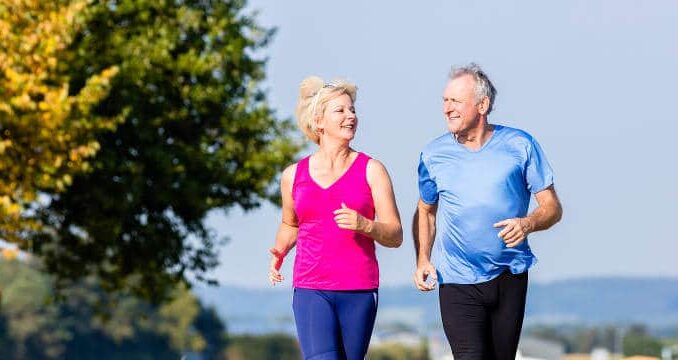
Introduction:
As individuals gracefully transition into their golden years, the significance of maintaining a healthy and active lifestyle becomes increasingly paramount. Exercise, often considered a cornerstone of well-being, plays a crucial role in enhancing the physical, mental, and emotional health of seniors. This comprehensive article delves into the myriad reasons why exercise is so important for seniors, exploring the multifaceted benefits that contribute to a fulfilling and vibrant third act of life.
I. Physical Health Benefits:
- Maintaining Muscular Strength and Bone Density: Regular exercise is instrumental in preserving muscular strength and bone density, which tend to diminish with age. Strength training exercises help seniors counteract the natural effects of aging, promoting mobility and reducing the risk of fractures and falls.
- Improving Cardiovascular Health: Cardiovascular exercise, such as walking, swimming, or cycling, contributes to a healthy heart and circulatory system. Engaging in regular aerobic activities helps manage blood pressure, lower cholesterol levels, and decrease the risk of cardiovascular diseases.
- Enhancing Flexibility and Joint Health: Stretching exercises and activities like yoga contribute to improved flexibility and joint health. Seniors who incorporate these practices into their routine often experience greater range of motion, reduced stiffness, and enhanced overall joint function.
- Managing Weight and Metabolism: Regular physical activity helps seniors maintain a healthy weight and manage metabolism. With age, metabolism tends to slow down, making weight management more challenging. Exercise becomes a crucial tool in promoting a balanced and healthy lifestyle.
- Alleviating Arthritis Symptoms: For seniors dealing with arthritis, exercise can provide relief by reducing pain and stiffness. Low-impact activities such as swimming or water aerobics are particularly beneficial for those with arthritis, as they minimize stress on the joints.
II. Cognitive Benefits:
- Preserving Cognitive Function: Exercise has been linked to cognitive health, with studies suggesting that regular physical activity can help preserve cognitive function and reduce the risk of cognitive decline and disorders such as Alzheimer’s disease.
- Enhancing Memory and Focus: Seniors who engage in regular exercise often experience improvements in memory and cognitive focus. Physical activity stimulates the release of neurotransmitters that support brain health and enhance cognitive abilities.
- Reducing the Risk of Dementia: There is growing evidence to suggest that maintaining an active lifestyle can reduce the risk of developing dementia. Exercise promotes neuroplasticity, the brain’s ability to reorganize and form new connections, which is vital for cognitive health.
- Elevating Mood and Reducing Stress: Physical activity stimulates the release of endorphins, commonly known as “feel-good” hormones. Seniors who exercise regularly often report reduced stress levels, elevated mood, and a greater sense of well-being.
III. Emotional Well-Being:
- Combating Depression and Anxiety: Exercise serves as a natural antidote to depression and anxiety. Seniors who engage in regular physical activity benefit from the mood-enhancing effects of exercise, fostering emotional resilience and combating mental health challenges.
- Promoting Better Sleep: Regular exercise contributes to better sleep quality, a common concern among seniors. Improved sleep patterns, in turn, have a positive impact on mood, cognitive function, and overall well-being.
- Boosting Self-Esteem and Confidence: Seniors who maintain an active lifestyle often experience a boost in self-esteem and confidence. Achieving physical fitness goals, no matter how modest, contributes to a sense of accomplishment and empowerment.
IV. Social and Community Engagement:
- Fostering Social Connections: Group exercises and community fitness programs provide seniors with valuable opportunities to socialize and build meaningful connections. The social aspect of exercise contributes to a sense of belonging and combats feelings of isolation.
- Participating in Recreational Activities: Exercise doesn’t have to be regimented; seniors can enjoy recreational activities such as dancing, gardening, or group outings. These activities not only promote physical health but also create enjoyable and memorable experiences.
- Strengthening Interpersonal Relationships: Seniors who exercise together often develop strong interpersonal relationships. Shared activities contribute to a sense of camaraderie, fostering lasting friendships and providing a support system for overall well-being.
V. Long-Term Independence:
- Preserving Functional Independence: Regular exercise plays a pivotal role in preserving functional independence for seniors. By maintaining strength, balance, and flexibility, older adults can continue to perform daily activities with ease, reducing dependence on others.
- Preventing Falls and Injuries: A strong and resilient body is less prone to falls and injuries. Exercise programs designed to improve balance and coordination are particularly beneficial in preventing accidents that could jeopardize the independence of seniors.
- Enhancing Longevity and Quality of Life: Studies consistently show that individuals who engage in regular physical activity tend to live longer, healthier lives. Exercise contributes not only to longevity but also to an enhanced quality of life by promoting vitality and overall well-being.
Conclusion:
As seniors navigate the golden years of their lives, embracing the profound importance of exercise becomes a transformative journey toward holistic well-being. The physical, cognitive, emotional, and social benefits of regular exercise intertwine to create a tapestry of health and fulfillment. By prioritizing an active lifestyle, seniors can not only mitigate the challenges associated with aging but also embrace the opportunities for continued growth, connection, and joy. The journey to aging gracefully and maintaining vitality is paved with the positive choices made in the pursuit of a life enriched by the many facets of exercise – a journey that celebrates the enduring spirit and resilience of those who embrace the golden years with vigor and vitality.